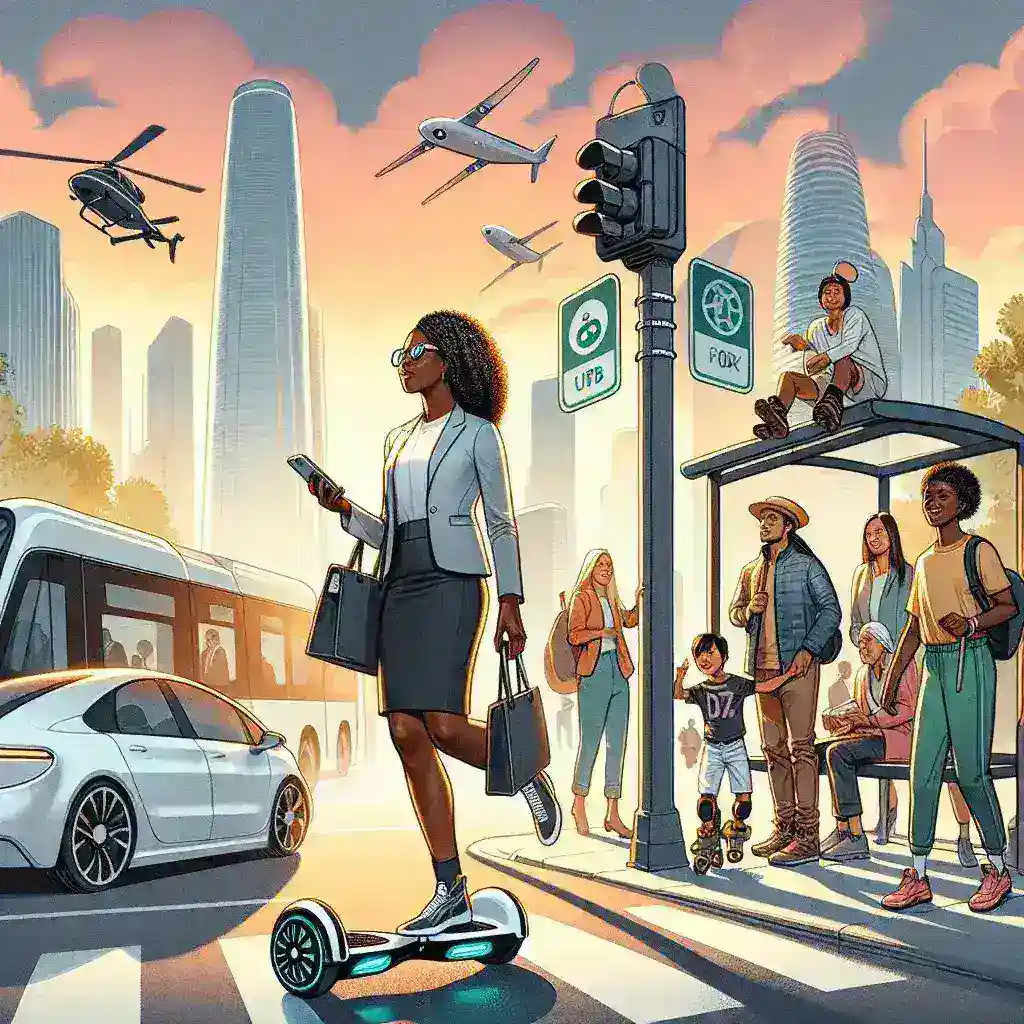In recent years, technological advancements have dramatically transformed the landscape of personal transportation. From innovative electric vehicles (EVs) to cutting-edge autonomous driving systems, technology is paving the way for a more efficient, eco-friendly, and interactive means of getting from one place to another. This article delves into the various technological breakthroughs shaping the future of personal transportation.
Electric Vehicles (EVs): The Green Revolution
Electric Vehicles (EVs) are at the forefront of the shift towards sustainable transportation. Unlike traditional gasoline-powered cars, EVs produce zero emissions, making them an eco-friendly option. Leading manufacturers like Tesla, Nissan, and Chevrolet are spearheading the development and mass production of EVs, resulting in increased accessibility and affordability for consumers.
Benefits of Electric Vehicles
- Environmental Impact: EVs significantly reduce greenhouse gas emissions and air pollution.
- Cost Efficiency: Lower fuel costs and government incentives make EVs a cost-effective choice over time.
- Low Maintenance: Fewer moving parts mean reduced maintenance costs and fewer breakdowns.
Autonomous Vehicles: The Future of Driving
Autonomous vehicles (AVs), also known as self-driving cars, are set to revolutionize personal transportation by enhancing safety and convenience. Companies like Waymo, Uber, and Tesla are leading the charge in developing AI-driven vehicles capable of navigating complex traffic scenarios with minimal human intervention.
Advantages of Autonomous Vehicles
- Improved Safety: Advanced sensors and AI algorithms significantly reduce the risk of accidents caused by human error.
- Traffic Efficiency: AVs can communicate with each other to optimize traffic flow and reduce congestion.
- Accessibility: Autonomous vehicles provide mobility solutions for individuals who are unable to drive due to age or disability.
Ride-Sharing Platforms: A New Era of Mobility
Ride-sharing platforms such as Uber, Lyft, and Didi Chuxing have redefined urban transportation by offering a convenient and cost-effective alternative to traditional taxi services. These platforms leverage technology to connect drivers with passengers, providing a seamless experience through intuitive mobile apps.
Key Features of Ride-Sharing Platforms
- Convenience: Users can book rides with just a few taps on their smartphones.
- Affordability: Competitive pricing makes ride-sharing an attractive option for daily commuting.
- Enhanced Safety: Features such as driver ratings and GPS tracking ensure a secure ride experience.
Micromobility: The Rise of E-Scooters and Bikes
Micromobility solutions like electric scooters (e-scooters) and electric bikes (e-bikes) are gaining traction as an efficient means of short-distance travel. Companies such as Bird, Lime, and Spin are leading the charge in this sector, providing dockless e-scooters and bikes that users can unlock via mobile apps.
Advantages of Micromobility
- Eco-Friendly: E-scooters and e-bikes emit no pollutants, contributing to cleaner urban air.
- Cost-Effective: These solutions are an affordable alternative to car ownership for short trips.
- Time-Saving: Avoid traffic jams and parking issues by using nimble e-scooters and bikes.
Hyperloop: The Future of High-Speed Travel
The Hyperloop concept, popularized by Elon Musk, aims to revolutionize long-distance travel by transporting passengers in pods through low-pressure tubes at near-supersonic speeds. Companies like Virgin Hyperloop and SpaceX are actively developing this groundbreaking technology.
Potential Benefits of Hyperloop
- Speed: Hyperloop could drastically reduce travel times between major cities.
- Energy Efficiency: The system promises to be more energy-efficient compared to traditional air and rail travel.
- Cost Savings: Lower operational costs could translate to affordable ticket prices for consumers.
Challenges and Considerations
While the future of personal transportation looks promising, there are several challenges and considerations to address:
- Infrastructure: Developing the necessary infrastructure for EVs, AVs, and Hyperloop requires significant investment.
- Regulations: Governments must establish regulations to ensure safety and manage the integration of new technologies.
- Public Adoption: Consumers need to be educated and encouraged to adopt these new modes of transportation.
Conclusion: A Transformative Journey
Technology is undoubtedly reshaping the future of personal transportation. From the rise of electric vehicles and autonomous cars to the proliferation of ride-sharing platforms and micromobility solutions, the landscape of how we move is evolving at an unprecedented pace. As these innovations continue to develop, they promise to bring about a future where transportation is safer, more efficient, and environmentally friendly.

